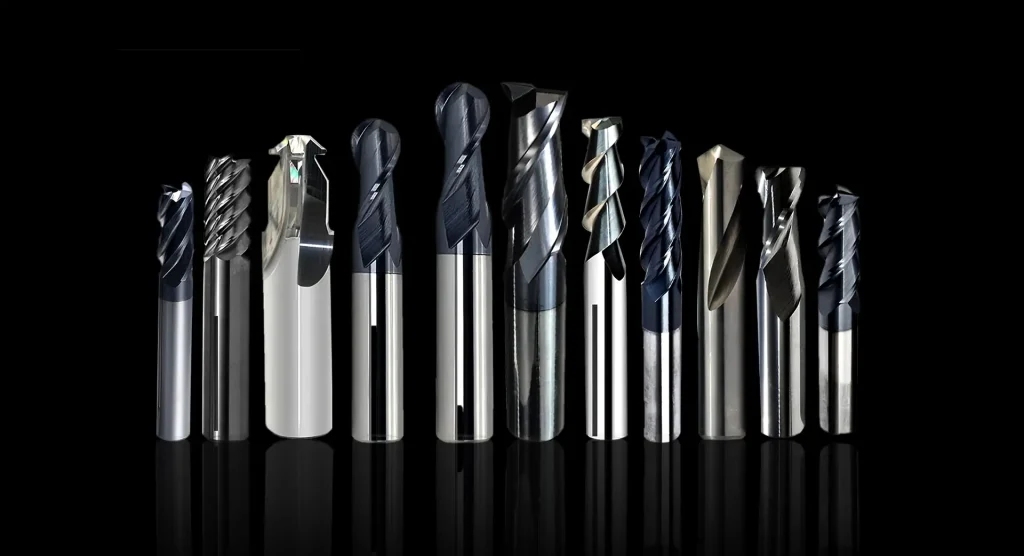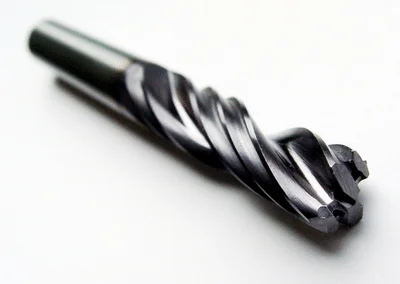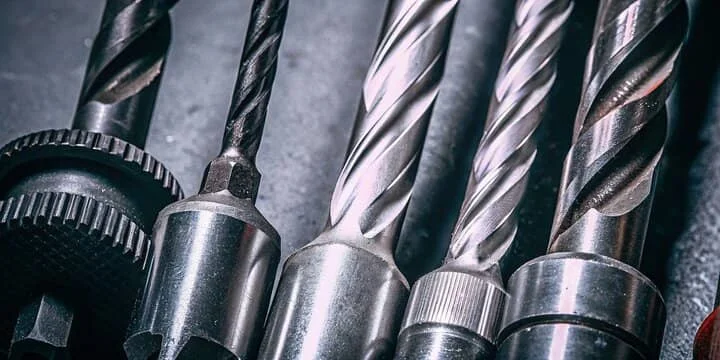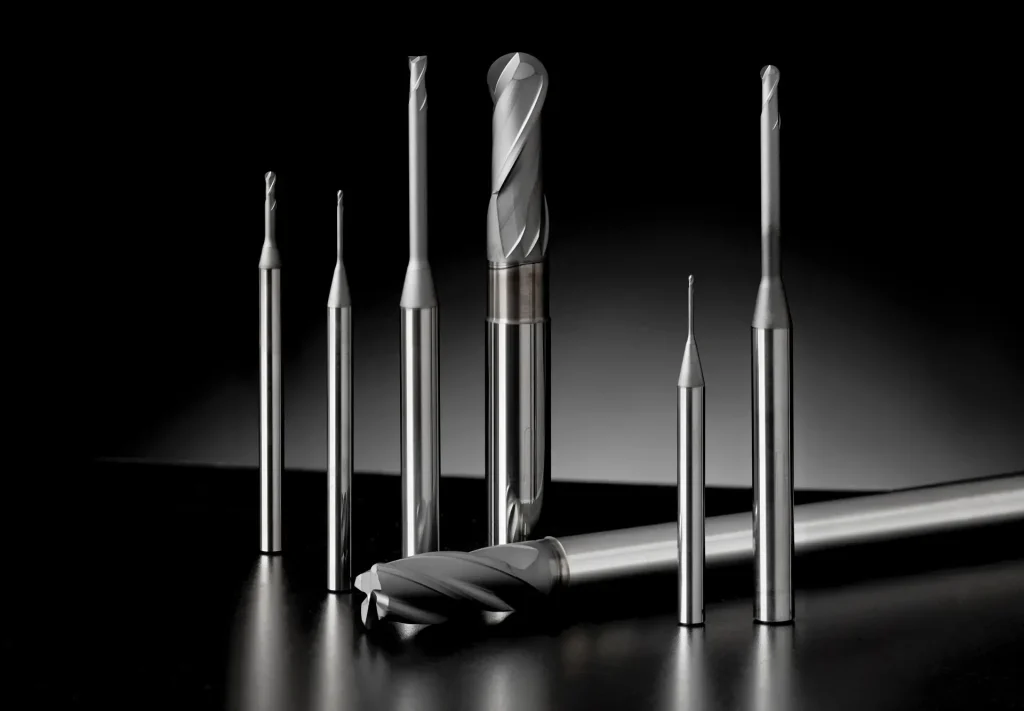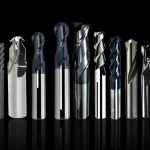Drill bits may seem like a small component of a project, but they play a pivotal role in the execution and outcome. The wrong drill bit can lead to botched jobs, material damage, and increased wear on your tools. By understanding the nuances of different drill bit types, you can not only improve the quality of your work but also extend the life of your drill and bits. Armed with this knowledge, you’ll be better prepared to face any challenge that comes your way, from basic home repairs to complex construction projects.
When you enter a hardware store, you’ll find a staggering variety of drill bits. Each type is designed for specific materials and purposes. Familiarizing yourself with these varieties can empower you to make informed decisions and enhance your project outcomes. Here’s a quick overview:
Twist Drill Bits
Twist drill bits are the most common type. They are versatile and suitable for general-purpose drilling in wood, metal, and plastic. Their design includes a pointed tip and helical grooves that help remove debris from the hole, ensuring a clean and precise cut. This versatility makes them a staple in any toolkit, providing a reliable option for various tasks.
In addition to their versatility, twist drill bits are available in a range of sizes, making them adaptable to different projects. Their affordability and ease of use further contribute to their widespread popularity, making them an excellent choice for both beginners and experienced professionals. Whether you’re drilling pilot holes or larger openings, twist drill bits are a practical and efficient option.
Brad Point Bits
Brad point bits are ideal for wood. They have a sharp point that prevents slipping, ensuring accurate holes. They’re perfect for furniture making and cabinetry, where precision is critical to the final product. The design minimizes wandering on the wood surface, allowing for cleaner entry and exit points.
These bits excel in creating smooth holes without splintering the wood, which is particularly important in fine woodworking. Their ability to maintain accuracy and reduce errors makes them a favorite among woodworkers who prioritize detail and quality. Investing in a set of Brad point bits can significantly enhance your woodworking projects, ensuring professional-looking results.
Masonry Bits
Masonry bits are designed to drill into hard materials like brick, concrete, and stone. They have a carbide tip that withstands high friction and heat, making them essential for construction projects. The robust design of these bits allows them to penetrate tough surfaces without breaking or dulling quickly.
The durability of masonry bits ensures that they can handle the rigors of heavy-duty tasks, from installing wall anchors to creating pathways for wiring. Their ability to maintain performance under pressure makes them indispensable for both DIY enthusiasts and professionals tackling demanding projects. With masonry bits, you can confidently approach any task involving hard materials.
Spade Bits
Spade bits are used for drilling large holes in wood. They have a flat, paddle-like shape and are excellent for rough work, like boring holes for wiring or plumbing. These bits are designed to remove material quickly, making them ideal for tasks that require speed over precision.
Their straightforward design allows for easy sharpening, extending their lifespan, and maintaining their effectiveness. Spade bits are perfect for situations where aesthetics are less critical, focusing instead on functionality and efficiency. Whether you’re running cables or installing fixtures, spade bits provide a reliable solution for creating larger openings in wood.
Forstner Bits
Forstner bits create clean, flat-bottomed holes in wood. They are great for woodworking projects that require precision, such as creating dowel holes or hinge mortises. The unique design of Forstner bits allows for overlapping holes and smooth finishes, making them ideal for decorative and structural applications.
Their ability to produce exact, smooth holes without splintering makes them a favorite among furniture makers and carpenters. By investing in Forstner bits, you gain a tool that elevates the quality of your woodworking projects, ensuring professional and polished results. Their versatility and precision make them a worthy addition to any woodworker’s toolkit.
High-Speed Steel (HSS) Bits
High-speed steel drill bits are durable and capable of drilling through metal, wood, and plastic. They are a popular choice due to their versatility and affordability. HSS bits are known for their heat resistance, which allows them to maintain their sharpness over extended use.
Their adaptability makes them suitable for a wide range of applications, from everyday repairs to specialized tasks. With the right care and maintenance, HSS bits can become a long-lasting component of your toolkit, providing reliable performance across various materials. Their balance of cost and functionality makes them an excellent choice for both amateurs and professionals.
Choosing the Right Drill Bit Material
The material of the drill bit affects its performance and longevity. Understanding the properties of different materials can help you select a bit that matches your project requirements and ensures optimal performance. Here are some options:
High-Speed Steel (HSS)
HSS bits are reliable for most drilling tasks. They resist heat and wear, making them suitable for drilling wood, metal, and plastic. Their durability and versatility make them a staple in many toolkits, offering a practical solution for various drilling needs.
Cobalt Bits
Cobalt bits are made from an alloy that contains cobalt, giving them superior strength and heat resistance. They’re excellent for drilling hard metals like stainless steel and cast iron, where other bits might struggle. The cobalt alloy enhances their hardness, allowing them to maintain sharpness over prolonged use.
Carbide-Tipped Bits
Carbide-tipped bits are incredibly hard and retain their edge longer than other bits. They’re ideal for drilling into masonry and other hard materials, where their toughness can withstand significant friction and heat. The carbide tip ensures that these bits maintain their effectiveness even under intense conditions.
Titanium-Coated Bits
Titanium-coated bits have a thin layer of titanium that reduces friction and increases durability. They are great for drilling metal, as they remain sharp longer than standard HSS bits. The titanium coating provides an added layer of protection, enhancing the bit’s performance and lifespan.
Selecting Twist Drill Bits for Your Project
Choosing the right twist drill bit depends on the material you’re working with and the size of the hole you need. Understanding these factors can help you select a bit that matches your project’s demands, ensuring efficiency and precision. Here’s a guide to help you make the right choice:
Drilling Wood
For wood, Brad Point bits or HSS bits are excellent choices. Use Brad Point bits for precision work, and HSS bits for general tasks. The choice between these depends on the level of detail required and the specific nature of your project.
Considering the type of wood and the desired finish can further refine your selection. For intricate woodworking, brad point bits offer the precision needed for clean, accurate holes. For more general applications, HSS bits provide the versatility and durability necessary for effective results.
Drilling Metal
For metal, use HSS bits or cobalt bits. HSS is suitable for softer metals like aluminum, while cobalt is better for harder metals like stainless steel. Understanding the metal’s properties can guide you in selecting a bit that balances performance with efficiency.
When working with particularly tough metals, cobalt bits offer the strength and heat resistance required for effective drilling. For more common metals, HSS bits provide a cost-effective and reliable solution. By aligning the bit choice with the metal type, you ensure optimal results and minimize tool wear.
Drilling Masonry
For masonry, opt for carbide-tipped bits. They are specifically designed to handle the friction and heat generated when drilling into hard surfaces. The robust nature of these bits allows them to maintain performance in demanding conditions.
When dealing with brick, stone, or concrete, carbide-tipped bits offer the durability needed to penetrate these tough materials. Their ability to withstand heat and pressure makes them indispensable for construction projects. By choosing carbide-tipped bits, you equip yourself with the tools necessary to tackle masonry confidently.
Drilling Plastic
For plastic, HSS bits work well. Use a slower drilling speed to prevent melting or cracking the material. The nature of plastic requires careful handling to avoid damage, and the right bit choice is crucial.
Slowing down the drilling speed helps maintain the integrity of the plastic, ensuring clean and precise holes. HSS bits provide the sharpness and control needed for effective plastic drilling, making them a practical choice for both simple and complex projects. By understanding the material’s properties, you can achieve the desired results without compromising quality.
Tips for Using Twist Drill Bits
Here are some tips to get the best results from your drill bits:
- Use the Right Speed: Different materials require different drilling speeds. Hard materials like metal need slower speeds, while wood can be drilled at higher speeds. Adjusting the speed accordingly can prevent damage and ensure a smoother drilling process.
- Apply Consistent Pressure: Avoid applying too much force. Let the drill bit do the work, ensuring a steady and controlled approach that reduces wear and tear on the bit and material.
- Keep Bits Sharp: Dull bits can damage your material and make drilling harder. Keep your bits sharp for the best performance. Regular sharpening extends the life of your bits and maintains their effectiveness, ensuring clean cuts and efficient drilling.
- Use Lubrication: When drilling metal, use a lubricant like cutting oil to reduce friction and heat. Lubrication not only preserves the bit but also improves the quality of the hole, minimizing the risk of overheating and material damage.
Maintaining Your Drill Bits
Proper maintenance of your drill bits extends their life and ensures better performance. Here’s how you can maintain them:
Cleaning
After use, clean your drill bits to remove any debris. This prevents buildup and rust, maintaining the bit’s effectiveness and longevity. Regular cleaning ensures that your bits are ready for use whenever needed, without compromising performance.
Sharpening
Regularly sharpen your bits to maintain their cutting edge. You can use a bench grinder or a specialized drill bit sharpener. Keeping your bits sharp not only improves their efficiency but also reduces the risk of damaging the material being drilled. Sharp bits provide cleaner cuts and require less force, enhancing both safety and precision.
Storage
Store your drill bits in a dry place. Use a drill bit case to keep them organized and protected from damage. Proper storage prevents rust and physical damage, ensuring your bits remain in optimal condition. An organized storage system also makes it easier to find the right bit for your project, saving time and effort.
Conclusion
Selecting the right twist drill bit is crucial for successful drilling. By understanding different types and materials, you can choose the best drill bits for your needs. Whether you’re drilling wood, metal, or masonry, having the right tools will make your work easier and more efficient. Remember to maintain your drill bits properly to prolong their lifespan and ensure they perform at their best. With this knowledge, you’ll be well-equipped to tackle any project that comes your way, confident in your ability to choose and use the right tools effectively. Embrace the power of informed choices, and watch your projects come to life with precision and ease.


